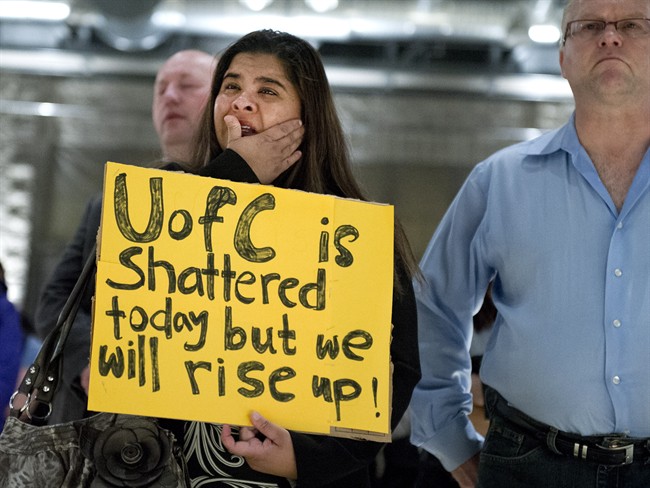Staff at the University of Calgary’s Student Union Wellness Centre are anticipating an increase in demand after a horrific stabbing Tuesday morning.

The facility is already busy because of final exams but now it will be responding to anyone looking for support following the death of five students at a Brentwood party.
Some of the victims were U of C students and one attended classes at the Alberta Academy of Art and Design.
READ MORE: 5 victims of Brentwood stabbing spree identified
The Distress Centre operates a 24 hour support hotline for anyone that wants to talk and there will be additional services available for people under the age of 24.

Get weekly health news
The Centre’s director Debbie Bruckner, says counsellors have been fielding calls from anxious parents and students.
“Really quickly we’ve created a space for anyone to walk in,” she says. “We’ve got nurses, psychologists, social workers, chaplains who are available at any time.”
READ MORE: Friends mourn victims of Brentwood stabbing
ConnecTeen also provides counselling every night between 5 and 10pm via text message.
Joan Roy, with the Distress Centre, says parents should keep a close eye out for abnormal behavior.
“If anyone is isolating themselves, not sleeping or having problems eating… parents want to make sure they’re reaching out on those issues.”
Common reactions to traumatic events include
– Shock/numbness
- Jill Biden’s ex-husband William Stevenson charged with murder in wife’s death
- She went missing in Canada in 1985. She may have been a Florida serial murder victim
- Son of Norway’s crown princess denies rape charges as trial begins
- RCMP misconduct cases grew in 2024, dismissals increased 5-fold: report
– Feeling unsafe or anxious
– Difficulty concentrating
– Withdrawal/isolation
– Sleep disturbance
– Sadness/irritability
– Appetite changes
– Being Hyper-alert
Links to support services








Comments